Artificial Intelligence–AI–can greatly assist many mundane education tasks. Tools like Siri, Alexa, ChatGPT, and a plethora of apps seem perfect for handling the repetitive and time-consuming aspects of education that take teachers away from the core of most lessons that require critical thinking, creativity, and problem-solving. Done right, this sort of collaboration between AI and teacher results in a better outcome for everyone.
One task identified by many teachers as well suited to AI assistance is generating quiz content, Our Ask A Tech Teacher crew came up with five great options for using AI in quiz creation and then reasons to pick one of them:
- QuizGecko
- Quizlet
- Qzzr
- Riddle
- Playbuzz
The Top 5 AI Quiz Builders For Your Classroom
Gone are the days of boring lectures and rote memorization.
AI-powered quiz builders are revolutionizing modern classrooms, transforming traditional teaching methods into captivating, gamified learning adventures.
Imagine a classroom where students are glued to their seats, laser-focused on interactive quiz games displayed on the smartboard.
A classroom where healthy competition motivates students to study and collaborate.
A classroom where instant feedback and adaptive difficulty foster rapid growth and retention.
This article will explore the top 5 AI quiz builder tools poised to turn classrooms into centers of excitement, growth, and possibility.
1. QuizGecko: Versatility and Innovation
Among the leading AI-powered quiz generators, QuizGecko is a versatile tool that can transform text, documents, or URLs into captivating interactive quizzes.
Its array of question styles, including multiple choice, true/false, short answer, and fill-in-the-blank, facilitates swift quiz and exam question creation from various document formats such as PDFs, DOCs, and PPTs.
But what sets QuizGecko apart is its innovative use of AI. The tool’s algorithms analyze the provided content and automatically generate well-structured questions that challenge students’ understanding and encourage critical thinking.
This saves educators time and ensures that the quiz content is diverse and comprehensive.
2. Quizlet: Personalization for Effective Learning
Widely recognized as a popular platform, Quizlet offers a diverse range of tools for creating and sharing quizzes, flashcards, and study materials. While not solely AI-focused, Quizlet incorporates smart learning algorithms to personalize study sessions for users.
The tool tracks students’ progress and adapts the difficulty of questions based on their performance. This personalized approach maximizes learning efficiency by focusing on areas where students need the most help. Moreover, Quizlet’s incorporation of spaced repetition, a technique proven to enhance long-term retention, ensures that students retain knowledge over time.
3. Qzzr (now part of Riddle): Interactive Engagement
Positioned as an interactive content creation platform, Qzzr empowers users to design quizzes, surveys, and polls. It may leverage AI-driven analytics to analyze user responses and extract valuable insights.
Educators can use this data to better understand students’ preferences, strengths, and
weaknesses. By tailoring quizzes to align with students’ interests and learning styles, Qzzr fosters engagement and active participation in the learning process.
4. Riddle: User-Friendly Engagement
A user-friendly quiz maker, Riddle offers an intuitive interface for crafting engaging quizzes. Though not heavily reliant on AI, Riddle boasts customization options and interactive features that enhance the quiz creation process.
What makes Riddle noteworthy is its emphasis on visual and interactive elements. Educators can incorporate images, videos, and animations into quizzes, creating an immersive experience that appeals to different learning modalities. This integration of multimedia enhances comprehension and makes learning more enjoyable.
5. Playbuzz: Interactive Exploration
As a dynamic content creation platform, Playbuzz allows users to design quizzes, polls, and interactive stories. It is likely that Playbuzz employs AI to analyze user interactions, enabling the recommendation of personalized content.
Playbuzz’s AI-driven content recommendations encourage students to explore topics beyond their comfort zones. By introducing new concepts and encouraging curiosity, the tool promotes a well-rounded and holistic understanding of various subjects.
The Benefits of AI Quiz Builder Tools in the Classroom
Personalized Learning Experience
AI quizzes can analyze users’ responses and behaviors, tailoring quiz content based on individual strengths and weaknesses. This personalized approach empowers students to focus on areas requiring more practice, optimizing learning outcomes.
Instant Feedback
AI-powered quizzes provide immediate feedback to students after each question. This prompt feedback fosters a deeper understanding of mistakes and misconceptions, enabling learners to correct errors and reinforce comprehension.
Adaptive Learning
Certain AI quiz builder tools employ adaptive learning algorithms to adjust question difficulty levels according to a user’s performance. This adaptive approach ensures that learners are consistently challenged appropriately, optimizing their learning progress.
Gamification and Engagement
These tools can enhance student engagement and motivation by incorporating gamification elements like badges, rewards, and leaderboards, elevating the learning process to an enjoyable and interactive experience.
Time Management
AI-powered quizzes often incorporate time limits for each question, aiding students in developing essential time management skills. This feature is particularly advantageous for standardized test preparation, where time constraints are critical.
Accessibility and Convenience
Accessible online, AI quiz builders offer students the flexibility to study anytime and anywhere with an internet connection. This convenience allows learners to tailor their study sessions to their own pace and schedule, seamlessly integrating with other commitments.
Data Analytics and Insights
Many AI quiz platforms generate detailed data analytics and insights into student performance. Educators can leverage this data to identify trends, track progress, and make data-driven decisions to enhance teaching methods and curriculum.
Retention and Recall
Frequent quizzing enhances long-term retention and recall of information. The tools facilitate spaced repetition, strategically reinforcing concepts at intervals to strengthen memory retention.
As you can see, AI quiz builders have many advantages that complement traditional teaching methods, facilitating effective learning and empowering students to achieve their academic goals.
Embracing these tools now can truly transform your classroom into dynamic hubs of interactive and effective learning.
Jacqui Murray has been teaching K-18 technology for 30 years. She is the editor/author of over a hundred tech ed resources including a K-12 technology curriculum, K-8 keyboard curriculum, K-8 Digital Citizenship curriculum. She is an adjunct professor in tech ed, Master Teacher, webmaster for four blogs, an Amazon Vine Voice, CSTA presentation reviewer, freelance journalist on tech ed topics, and author of the tech thrillers, To Hunt a Sub and Twenty-four Days. You can find her resources at Structured Learning.

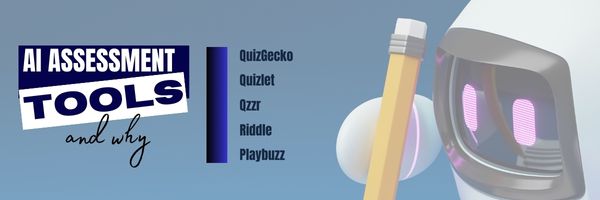
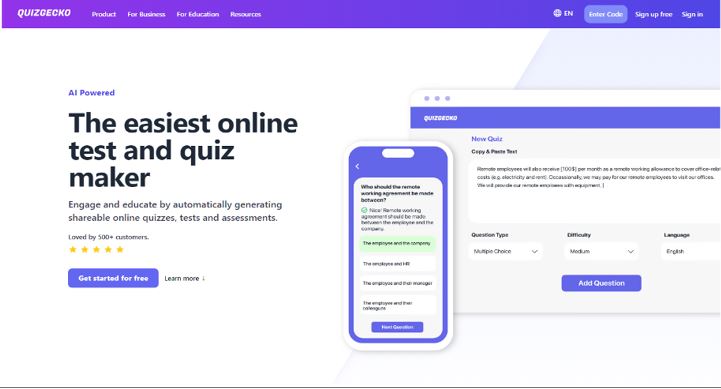
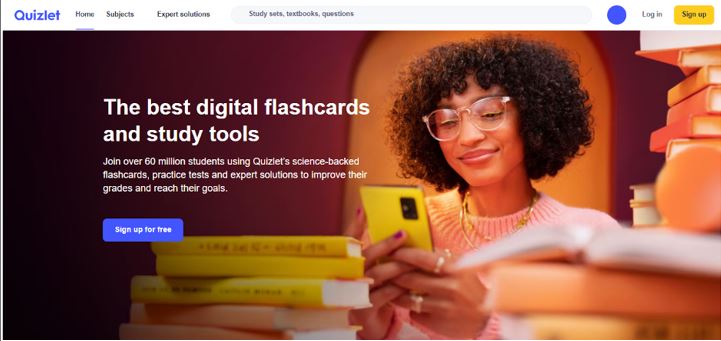
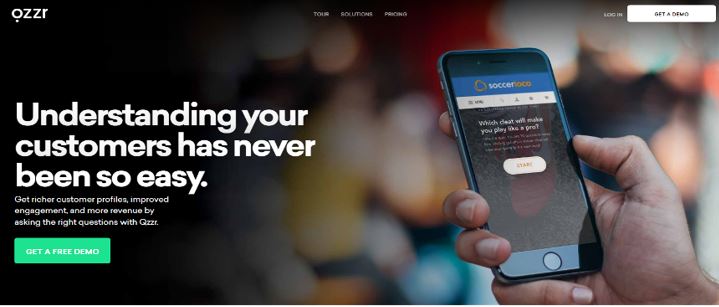
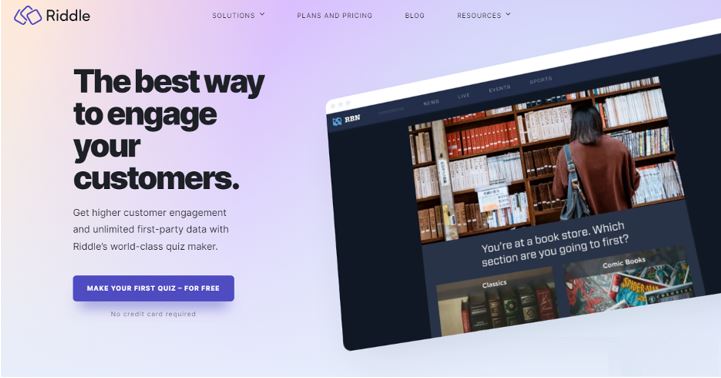




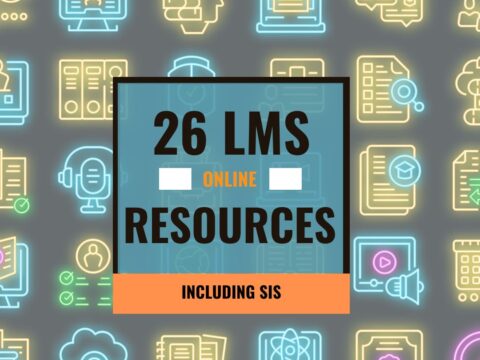

































I love that AI can help teachers focus on critical thinking, creativity, and problem-solving and that classrooms can become centers of excitement, growth, and possibility. We need more of that.
It is wonderful. Though I worry about who programmed the AI, I suppose it’s the same as ‘Who programmed the textbook quizzes?’ Thanks for visiting, Norah.
I think each generation ‘worries’ about the one that comes after. 🙂
It’s funny how people develop an unhealthy fear of things they don’t understand. I can see some pitfalls with AI, but it seems like the benefits outweigh the risks.